A cannabis compliance platform. A company that wants to change the way Americans receive legal services. The producers of patented microbial wraps. The creator of a smart cushion to prevent bed sores for the mobility-impaired.
Other than being early-stage startups, one thing these four very different businesses have in common is that they were all founded by LGBTQ entrepreneurs. Another commonality is that, statistically, they are less likely to receive funding from venture capitalists because of their founders’ identities.
According to data from StartOut, an organization dedicated to enabling the economic empowerment of LGBTQ entrepreneurs, there would be 10 times more LGBTQ entrepreneurs in the U.S. if everyone had equal access to funding and resources.
It’s a stark finding, and one all too familiar to Ari Kalfayan, senior business development manager for AI/ML startups at Amazon Web Services (AWS).
As an entrepreneur himself, Kalfayan benefited from StartOut’s support early in his career in artificial intelligence and machine learning. Now at AWS, he is the driving force behind the company’s collaboration with StartOut to offer 50 mentorships, along with business and technical expertise, to LGBTQ entrepreneurs starting their own businesses.
As part of AWS’s collaboration with StartOut, the company is planning to provide more than $1 million in AWS credits to participants and members of the organization’s Growth Lab startup accelerator through AWS Activate, a program for early stage startups.
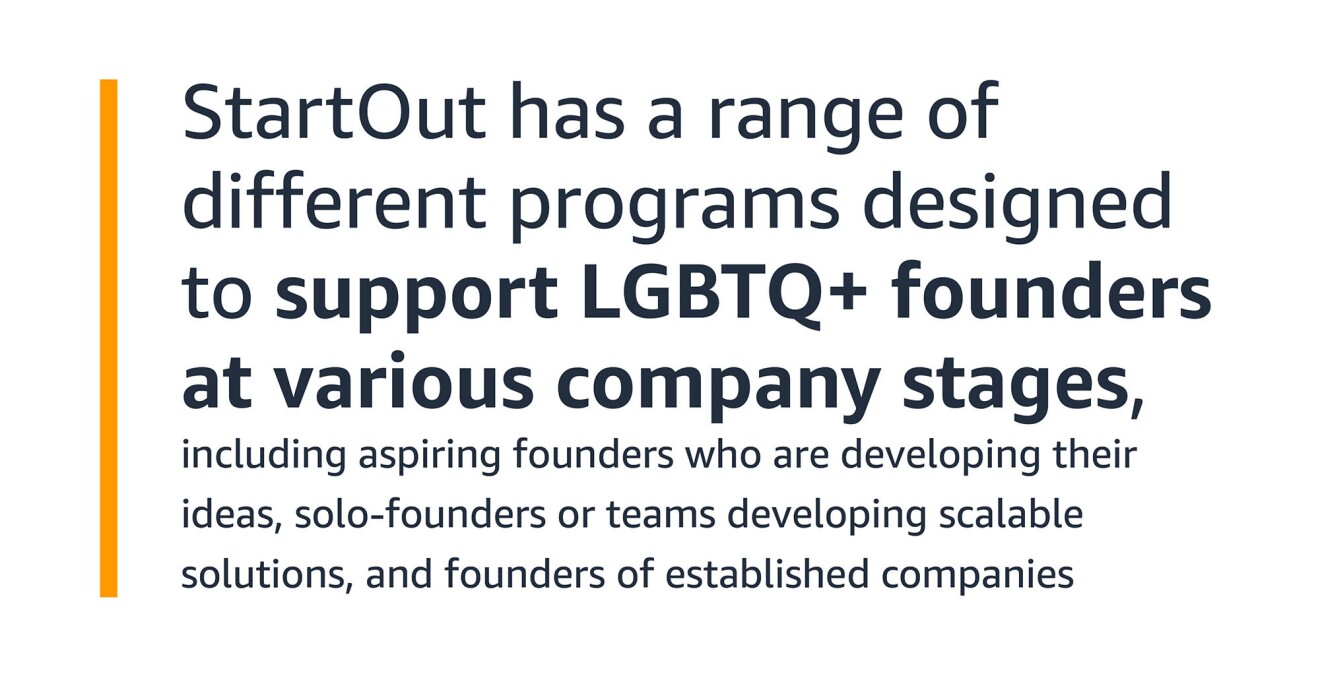
AWS is also supporting StartOut’s Demo Days. The events give LGBTQ founders an opportunity to pitch to a judging panel of investors, venture capitalists, entrepreneurs, and corporate partners. The most recent Demo Day was in June.
“This was by far the best Demo Day I’ve seen,” said Kalfayan, who took part in one of the first-ever events eight years ago as an entrepreneur and is now a member of the judging panel.
“For a pitch to succeed, you need to have the right vision, to assemble the right team, and to address the right problem at the right time,” Kalfayan said. “You also need to be able to communicate with the utmost confidence that you are going to solve it. This group was exceptional. They are shining a light for the LGBTQ community, and I hope they will inspire many others to step forward with their ideas.”
The four startups mentioned above—Komplyd, Legal Karma, KleenWraps, and Wave Therapeutics—all took part in the June Demo Day. They won first, second, and third place, and the People’s Choice prize, respectively.
Their founders sat down with Amazon to discuss what problems their companies are trying to solve and what they’ve gained from working with StartOut, whose events are free and open to everyone, and designed to support LGBTQ+ founders of startups in any industry at any development stage.
Tell us about the idea behind your business.
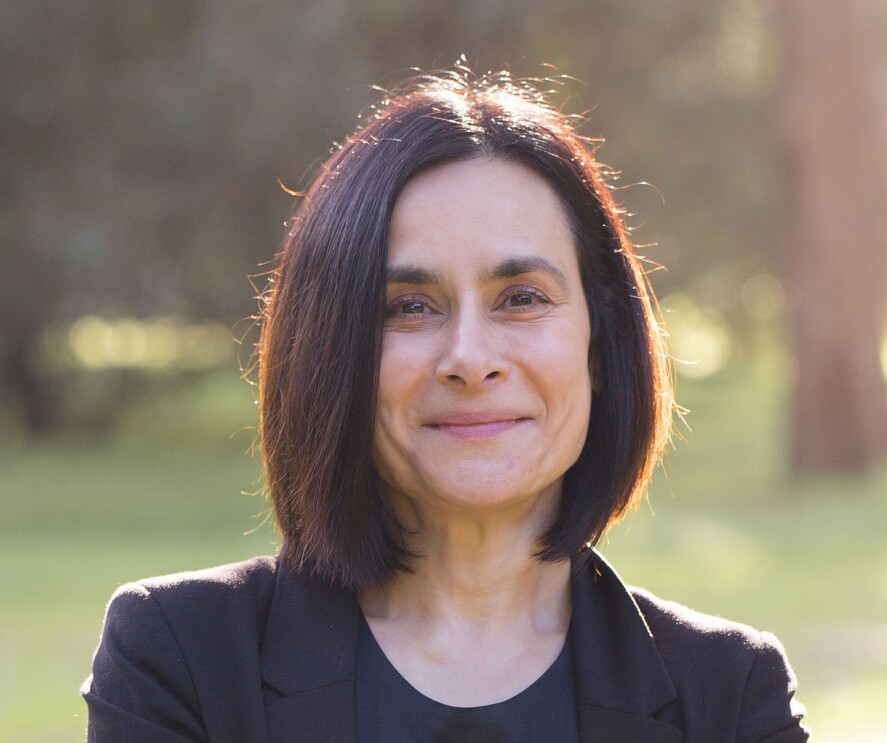
Rose Elliot, co-founder, Komplyd: Myself and my two co-founders—one of whom is my wife—are passionate about fitness, health, and wellness, including the use of cannabis for medicinal and recreational purposes. The cannabis industry is growing rapidly and the laws that govern it are changing all the time. Businesses are struggling to keep up, and in many cases, it’s preventing their growth. Even a small mistake can lead to fines and loss of licenses. We’ve all been working in Silicon Valley in engineering for more than 20 years. We saw an opportunity to apply our experience in cyber security, financial services, and consumer technology to building a compliance platform that makes it easier for cannabis companies to meet complex evolving regulations and gives them more time to focus on their business.
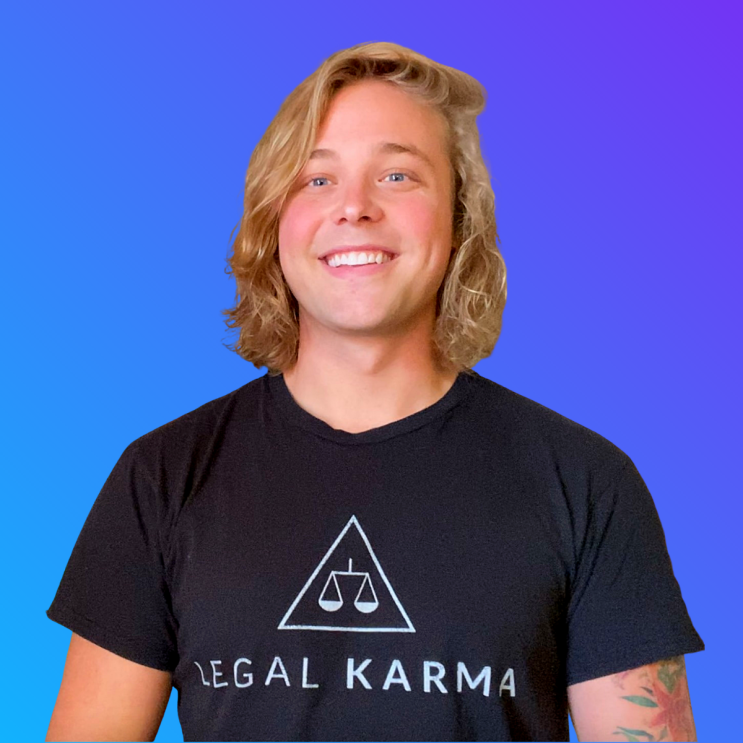
Kory Kelly, co-founder, Legal Karma: Not many people know that 80% of Americans can’t afford access to legal services. I’m not talking about personal injury or insurance claims here. This about family law, criminal law, and immigration law—everything that relates to our liberty. Pro bono efforts are not enough. We need technology to scale and align the financial goals of clients and lawyers. We spoke to dozens of attorneys from different types of law firms and found a consistent need to improve the tools they use to interact with clients. We’ve built a client-centric platform designed to help people make sense of what can often be an overwhelming legal process, and aligns their financial situation with the financial goals of law firms.
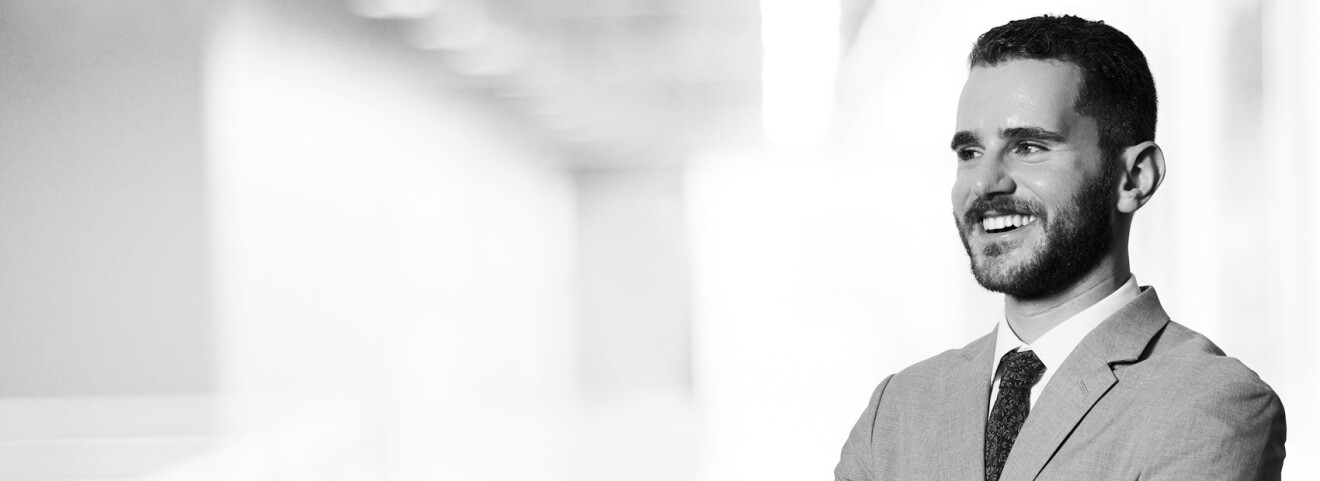
Russell Silver-Fagan, co-founder, KleenWraps: Our signature products are reusable, waterproof microbial wraps that act as barriers between your hands and the germs found on shared surfaces. My mother and I had the idea when we realized we needed more sophisticated protection from infection-causing bacteria that’s often found on shared equipment at the gym. Most people rarely take time to disinfect the handles when lifting free-weights, or using cardio and strength training machines. We’ve all had moments working out where we’ve wondered if the surface we’re touching is wet because someone just cleaned it, or if it’s sweat residue from other gym users. You can wrap or slide our products onto grips of all types and sizes, for example dumbbells or bike handles. They’re made of neoprene and have a textural silicone pattern to ensure strong traction.
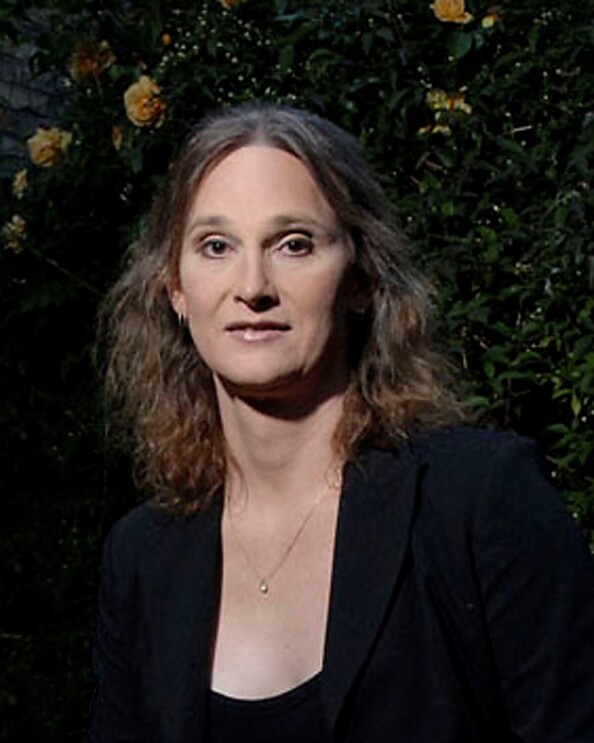
Jessica Bussert, founder, Wave Therapeutics: I started my career in tech, then moved to business consulting for one of the largest companies in the world. I lost my career due to discrimination and went back to school to train as a nurse. In accident and emergency, I met a disabled soldier who had the worst bedsores I’d ever seen. I wanted to help. At the time, I didn’t realise that bedsores—injuries to the skin that usually develop under pressure from prolonged lying or sitting—claim around 60,000 lives a year in the U.S. and cost the economy $10 billion. They are a huge problem for millions of people with mobility issues, from those with spinal cord injuries, to stroke survivors, the severely obese, and the elderly. We’ve developed a smart cushioning technology that changes pressure points and blood flow, using analytics, sensors, and more to prevent bedsores and help with diagnostics.
Why did you want to take part in StartOut’s Demo Day?
Russell: It was a fantastic opportunity for us to help get the word out there. Anything that can assist with consumer education—the most critical component of our marketing—is something that we need to participate in.
Rose: I like the work StartOut does and saw this as an opportunity to get exposure for the problem we’re trying to solve, as well as to network with the broader LGBTQ startup community. That’s exactly what’s happened. Since the event, I’ve already been introduced to investors and a number of potential customers and partners. It’s always wonderful to connect with other founders, and this has really opened things up.
Kory: I wanted to pitch alongside fellow LGBTQ leaders in a group that shares my ideology. I am so proud to be part of the LGBTQ community. Legal Karma is a fully LGBTQ-owned and operated business. StartOut has given back to LGBTQ entrepreneurs in such a big way. For me, the opportunity to connect with group of people who have already been there and done that, and are willing to share their knowledge, is priceless.
Jessica: We’re actively trying to raise a $2 million dollar seed round right now. I knew there would be investors in the audience, so it was a great opportunity to get in front of people who could actually make a difference to the direction of our business.
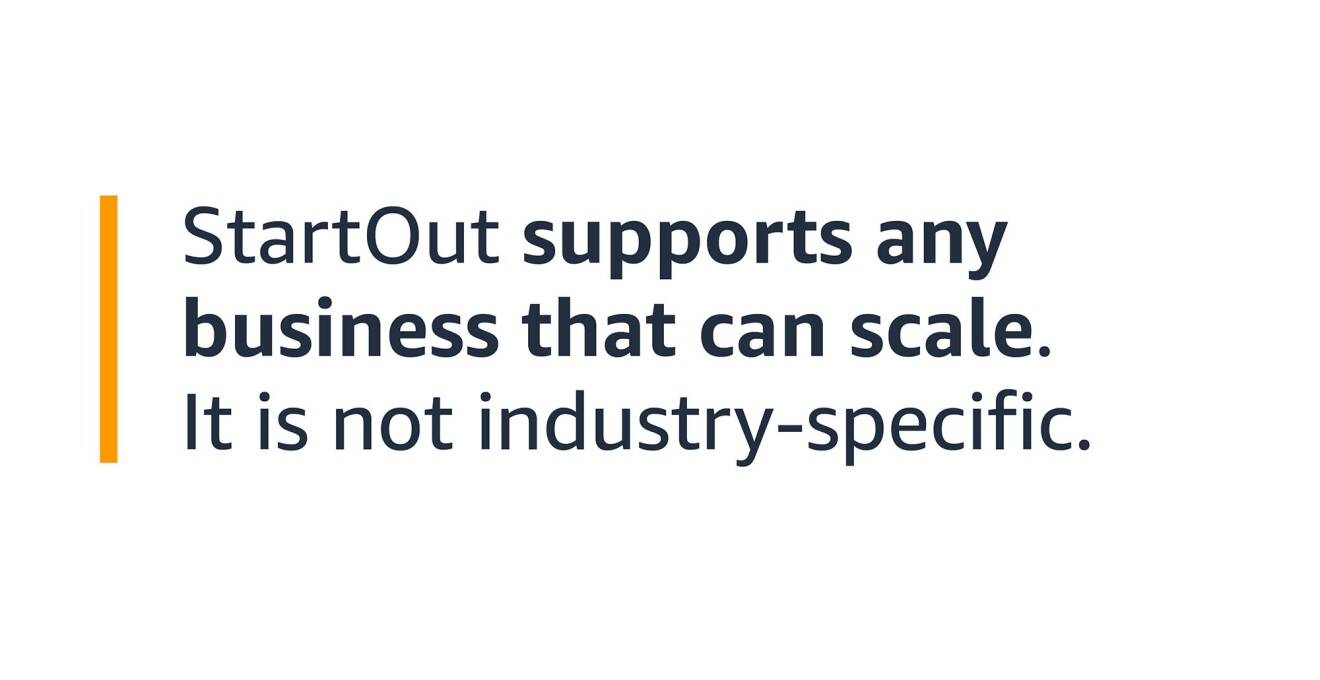
Had you worked with StartOut before?
Kory: Several leaders within the StartOut community have mentored me, and I’ve also mentored a few people myself. Being an entrepreneur is difficult and disconfirming in many ways. There’s a kind of emotional stamina you need as a founder. If you’re reading this now and you’re an LGBTQ startup founder, I urge you to tap into this community. You can receive the help you need from founders who are a few years ahead of you, and you can help other folks who are maybe a year or so behind.
Jessica: Yes, I volunteer in two different capacities. Firstly, I’m a mentor to a younger founder. I’m 56 and I’ve built a lot of businesses, so I’m sharing that experience with them as they’re just getting started. Secondly, I’m on the StartOut programming board. We organize different events for the community, for example hearing from experts on topics like raising capital.
Rose: This is the first time I’ve worked with StartOut. I was already aware of the great work they do to amplify the stories and voices of the LGBTQ community and increase our ability to compete on a level playing field. It’s been a fantastic experience so far.
Russell: A friend of mine who is involved in the StartOut board referred me. Since joining, I’ve had the pleasure of working one-on-one with a mentor from the venture capital community.
Why does an organization like StartOut need to exist?
Jessica: Discrimination against LGBTQ people is real and it affects many of us in profound ways. I am a trans woman, and I transitioned while I was working for a global corporate organization, supposedly with the support of the company. The day I returned, one of my employees told me he was now my boss. I went through an employment tribunal, which I lost. I had to leave the UK, where I was living, and come back to the U.S. Then when I started nursing school, I faced similar prejudice. I was outed by someone I worked with and couldn’t find employment. When it comes to accessing funding for my business, statistics show that as a trans woman, my chances are almost non-existent. StartOut is an incredible organization that advocates for LGBTQ founders, investors, and our allies—in word and action. It’s impossible to overstate how valuable is it to be part of such a supportive, loving, and welcoming community.
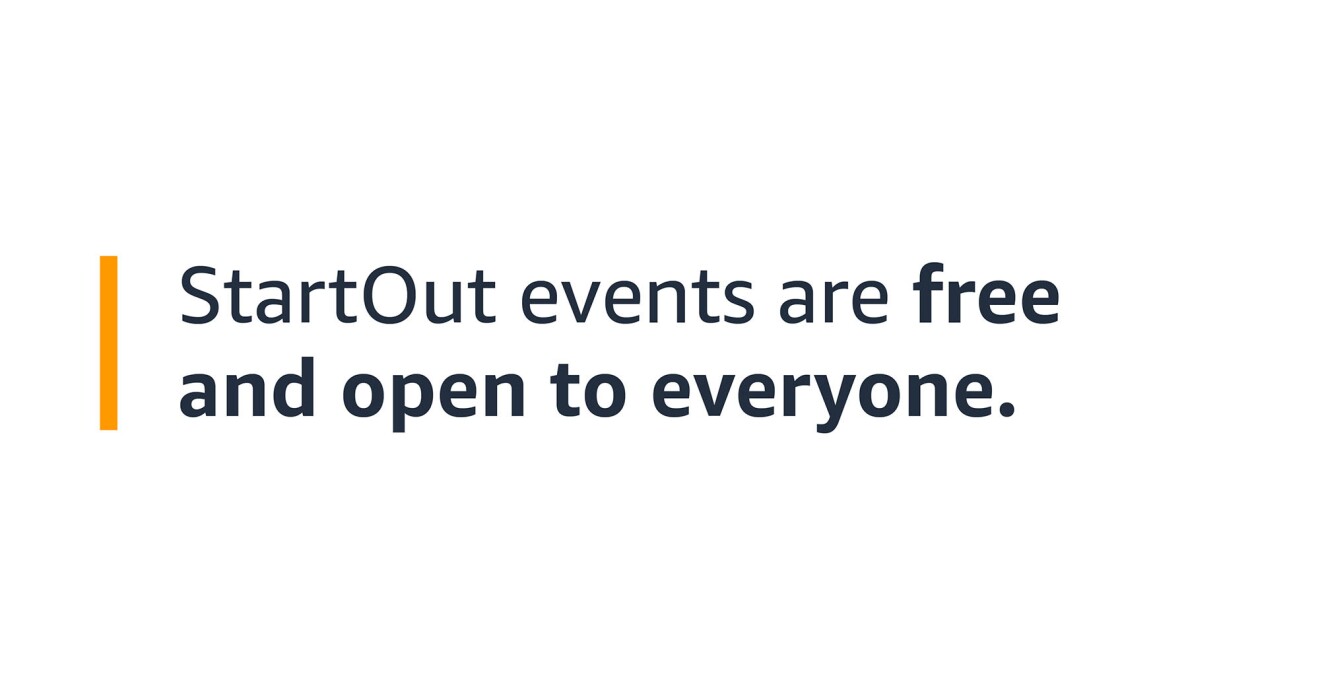
Rose: The LGBTQ community is severely unrepresented when it comes to funding. I believe the stat is that less than 1% of venture capital funding in the U.S. goes to LGBTQ entrepreneurs. This is one of several reasons that 37% of LGBTQ entrepreneurs choose not to “out” themselves to investors. This needs to change. StartOut is leading the charge by championing LGBTQ+ entrepreneurs and providing a supportive community.
Russell: As first-time founders running a family business, my mother and I did not have a community to turn to when dealing with questions related to product development, marketing, and raising capital. StartOut provided us with a support network as we began to scale our business. I was out in all of my previous workplaces, but my mother—who is also a member of the LGBTQ community—is from a different generation and did not feel comfortable sharing her sexuality with her co-workers. StartOut has helped to change that. It’s such an important organization because it supports marginalized founders and makes them visible to the broader startup and venture capital community. It creates a sense of belonging, and it allows LGBTQ entrepreneurs be their full selves.
Kory: In our society, the only way to get ahead is through ownership. Groups like StartOut are putting LGBTQ individuals in the spotlight so that they can get a shot at that ownership. I appreciate that StartOut focuses on LGBTQ entrepreneurs who are making a social difference. I’m proud to stand next to them.
To learn more, visit the StartOut website. Find out about its GrowthLab startup accelerator, how to apply for a scholarship program through the StartOut Founder program and about matching with or becoming a mentor through StartOut.
Trending news and stories









